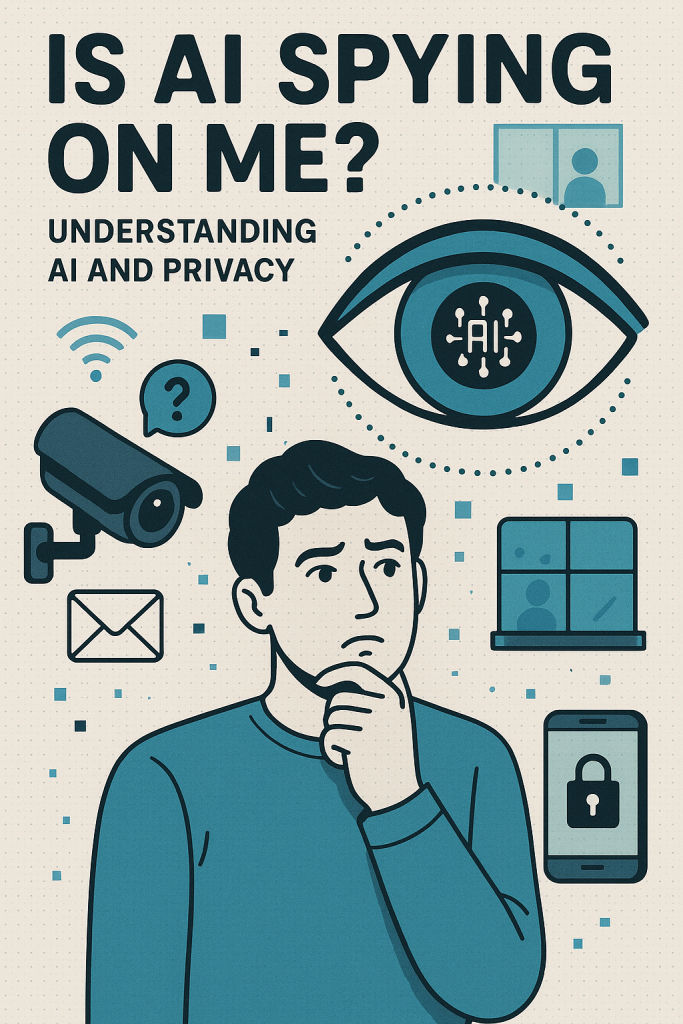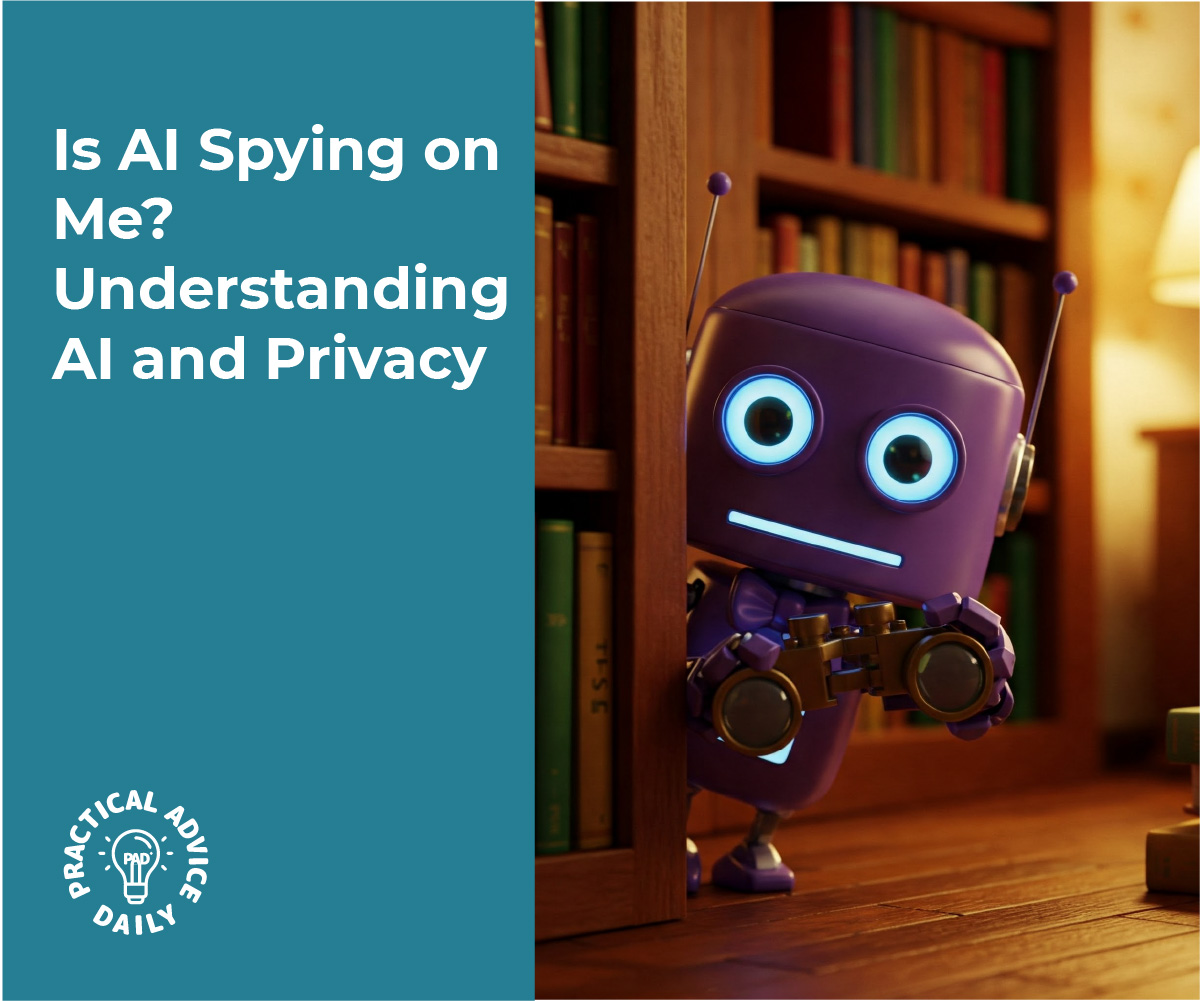Have you ever mentioned something out loud, only to see an ad about it later? It’s no wonder people ask, “Is my phone listening to me?” You’re not alone—and you’re not being paranoid. In this guide, we’ll explore how artificial intelligence (AI) and smart devices work, what’s really going on with data collection, and what you can do to stay in control. Don’t worry—it’s all explained in simple terms, no tech jargon here!
Table of Contents
🔍 Key Takeaways
- AI doesn’t “spy” the way movies show—but your devices may collect data.
- Smartphones and home assistants can hear you—but only when activated (usually).
- Many apps and services track your activity to show you targeted ads.
- You can control what’s shared—settings and permissions are key.
- Understanding how data is used gives you more power, not less.
What Is AI, Really?
Think of AI as a very smart assistant built into your phone, tablet, or computer. It helps answer questions, suggest things you might like, or remind you about appointments.
But AI isn’t a person or a spy—it’s a tool. It learns by analyzing patterns, like what you search for online or which ads you click.
Why Does It Feel Like AI Is Always Listening?
Many people wonder why, after talking about a product, they suddenly see ads for it. Here’s why that happens:
- Your data is tracked in other ways.
- Websites, apps, and social media platforms collect data on what you look at, like, and click.
- They then show ads based on those patterns—not necessarily what you said aloud.
- Websites, apps, and social media platforms collect data on what you look at, like, and click.
- Voice assistants are activated by “wake words.”
- Devices like Alexa, Siri, or Google Assistant are always on standby, listening for their name.
- Once they hear “Hey Siri” or “Alexa,” they start recording to answer your request.
- These recordings may be stored or reviewed to improve the service, unless you turn that off.
- Devices like Alexa, Siri, or Google Assistant are always on standby, listening for their name.
- Some apps request microphone access unnecessarily.
- That doesn’t always mean they’re recording—but it’s smart to check.
- That doesn’t always mean they’re recording—but it’s smart to check.

How Do Devices Collect My Data?
Here’s how data collection usually works:
- Websites and apps use “cookies” to remember your behavior (e.g., what you searched for or bought).
- Voice assistants record commands you give them after they hear their wake word.
- Location data is collected by GPS-enabled apps, like maps or weather.
- Social media tracks what posts you engage with.
It may sound like a lot, but most of this is done to personalize your experience—not to spy. Still, it’s your right to know and control what’s being shared.
What You Can Do to Protect Your Privacy
Here are some simple steps you can take:
- Review your device’s privacy settings
- On iPhones and Android phones, you can turn off microphone access for specific apps.
- On iPhones and Android phones, you can turn off microphone access for specific apps.
- Limit ad tracking
- Most smartphones have a setting to reduce personalized ads.
- Most smartphones have a setting to reduce personalized ads.
- Delete voice assistant history
- Alexa, Google, and Siri all let you review and delete past recordings.
- Alexa, Google, and Siri all let you review and delete past recordings.
- Be cautious about app permissions
- Only give apps access to your microphone, location, or camera when it’s truly needed.
- Only give apps access to your microphone, location, or camera when it’s truly needed.
- Use “incognito” or private browsing mode
- This limits what websites can track while you surf the web.
- This limits what websites can track while you surf the web.
Real-Life Example
Jane’s Story:
Jane, 68, noticed she kept seeing ads for gardening tools after chatting about her yard with a friend. She thought her phone must be eavesdropping. But after checking her browsing history, she realized she had searched for plants a few days earlier. The ad wasn’t from her voice—it was based on her online activity.
Final Thoughts
So—is AI spying on you? Not exactly. While your devices may collect information, it’s not about sneaky spying—it’s about learning from your behavior to offer suggestions or ads. That said, you do have the power to limit what’s collected and take control of your privacy.
The key is knowing where to look and what to adjust. With a few settings changes, you can feel more confident and safer using your technology.
